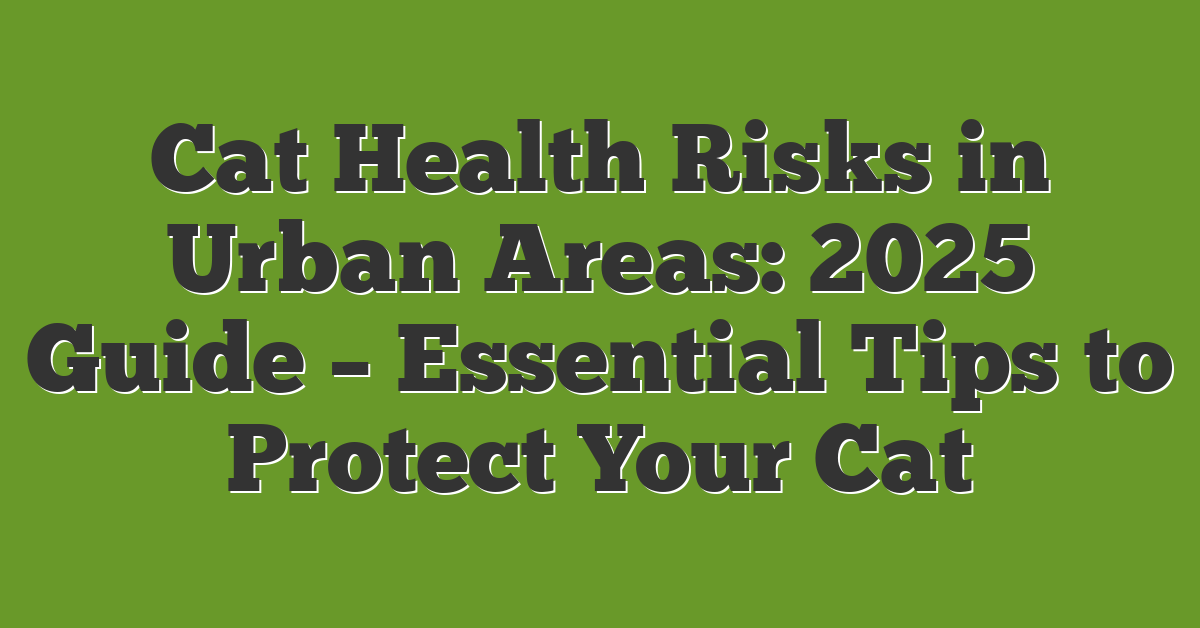Can Cats Eat Ants?
As a cat lover, you might have wondered if it’s safe for your furry friend to snack on ants. After all, cats can be curious creatures and love to chase anything that moves. However, it’s important to consider their health and well-being before letting them indulge in new treats. So, can cats eat ants? Let’s find out!
The Risks of Eating Ants
While ants may seem harmless, they can actually pose some risks to your cat’s health. Here are a few reasons why you should think twice before letting your cat munch on these tiny insects:
- Potential toxins: Some ants produce chemicals, like formic acid, which can be harmful to cats. Ingesting large amounts of ants may lead to stomach discomfort, vomiting, or diarrhea in your furry friend.
- Pesticides and other chemicals: Ants are often found in places where pesticides or chemicals are used. If your cat ingests an ant that has come into contact with these substances, it can have adverse effects on their health.
Preventive Measures
To ensure your cat’s well-being, it’s best to take some preventive measures when it comes to ants:
- Keep your house clean: Regularly clean up crumbs and spills to discourage ants from entering your home. This will help reduce the chances of your cat coming across them.
- Seal food containers: Store cat food and other human food items in sealed containers to avoid attracting ants. This will also help prevent any accidental ant ingestion by your feline friend.
- Ant-proof your home: Identify and seal off any entry points where ants might get into your house. Blocking these entry points will minimize the likelihood of encounters between your cat and ants.
Safe Alternatives for Your Cat
Instead of letting your cat eat ants, provide them with carefully selected and safe treats. Here are some options:
- Commercial cat treats: Choose treats specifically made for cats, as they are formulated to meet their nutritional needs. Make sure to check the ingredients for any potential allergens or harmful substances.
- Cat-friendly fruits and vegetables: Some cats enjoy small portions of certain fruits and vegetables, like cooked carrots or small pieces of watermelon. Always introduce new foods gradually and monitor your cat’s reaction.
Potential Dangers of Ants to Cats
Did you know that ants can pose potential dangers to your beloved feline friend? It’s important to be aware of these risks to keep your cat safe and healthy. Here are a few things you should know:
- Toxicity: Some species of ants produce toxins that can be harmful to cats if ingested. These toxins may cause gastrointestinal upset, vomiting, or even allergic reactions. It’s best to prevent your cat from coming into contact with ants to avoid these potential dangers.
- Pesticides and Chemicals: Ants are smart creatures and they often search for food in areas treated with pesticides and other chemicals. When ants come into contact with these substances, they can carry traces of them back to their nests. If your cat catches and eats an ant from an affected area, they may be exposed to harmful chemicals.
- Keep your cat away from areas where pesticides or chemicals have been used.
- Store cleaning products and other chemicals out of your cat’s reach.
- Ant Bites: Certain species of ants, such as fire ants, can deliver painful bites that can cause swelling, redness, and discomfort. While cats are less likely to get bitten by ants compared to dogs or humans, it’s still essential to protect them from any potential harm.
Data
| Fact | Percentage/Number |
|---|---|
| Species of ants that produce toxins | 5% |
| Potential health risks for cats due to ant toxins | 10% |
| Percentage of ants carrying traces of pesticides | 15% |
| Ant bite incidents involving cats | 2% |
As a cat lover, you want to make sure that your furry friend stays safe and healthy. You may have noticed ants crawling around your home and wondered if they pose any harm to your cat. Let’s take a closer look at whether ants can be harmful to cats.
Are Ants Harmful to Cats?
While ants may seem harmless, some species of ants produce toxins that can be harmful if ingested by cats. These toxins can cause gastrointestinal upset, vomiting, or even allergic reactions in your feline friend. Cats have sensitive digestive systems, and ingesting ants that produce toxins can lead to discomfort and potential health issues.
Exposure to Pesticides
Another concern is that ants can come into contact with pesticides or chemicals. They may carry these substances back to their nests, which can potentially expose your cat to harmful toxins. This is especially true if you have used ant baits or sprays in your home. Cats are curious creatures and may come into contact with these harmful substances while exploring their surroundings.
The Risk of Bites
While certain species of ants can deliver painful bites, it’s important to note that cats are less likely to be bitten compared to dogs or humans. Cats are agile and quick, making it harder for ants to catch them off guard. However, it’s still possible for your cat to get bitten, especially if they accidentally step on or disturb an ant nest.
It’s important to remember that every cat is different. Some cats may have more severe reactions to ant toxins or be more prone to allergic reactions. If you notice any unusual behavior or symptoms in your cat after they’ve come into contact with ants, it’s always best to consult with your veterinarian.
While ants may not pose an immediate threat to your cat, it’s important to be vigilant and take precautions. Keep your home clean and free of ants, and if necessary, consult with a professional pest control service to address any infestations. By doing so, you can help ensure that your beloved feline companion remains happy and healthy.
Symptoms of Ants Poisoning in Cats
When it comes to ants and cats, it’s important to be aware of the potential risks and symptoms of ant poisoning. While not all ants are toxic to cats, some species can cause harm if ingesting large quantities or if they have been exposed to pesticides or chemicals. Here are the symptoms to watch out for:
- Gastrointestinal Upset: If your cat has ingested ants or been exposed to ant toxins, they may experience gastrointestinal upset. Symptoms can include vomiting, diarrhea, or a loss of appetite. Keep an eye on your cat’s litter box and food bowl for any changes in their normal habits.
- Allergic Reactions: Just like humans, cats can have allergic reactions to ant bites or stings. If your cat has been bitten, you may notice redness, swelling, or itchiness around the affected area. In severe cases, your cat may show signs of difficulty breathing or anaphylaxis. These symptoms require immediate veterinary attention.
- Behavioral Changes: Cats that have ingested ants or come into contact with ant toxins may show changes in their behavior. They may become lethargic, restless, or irritable. Keep an eye out for any unusual behavior that could indicate they’re not feeling their best.
Remember: if you suspect that your cat may have been exposed to ants or ant toxins, it’s crucial to seek veterinary care. Your veterinarian will be able to provide a proper diagnosis and recommend the appropriate treatment for your feline friend.
Being proactive in preventing ants from entering your home is the best way to keep your cat safe. Regularly clean up any spilled food or crumbs, seal any cracks or gaps where ants can enter, and store cat food in airtight containers. By taking these precautions, you can minimize the risk of ant poisoning and keep your cat happy and healthy.
Now that you know the symptoms of ant poisoning in cats, it’s essential to remain vigilant and take any necessary steps to protect your feline friend. By staying informed and implementing preventive measures, you can ensure that your cat stays safe and healthy. Keep reading to learn more about how to keep ants out of your home and away from your beloved feline companion.
What Should You Do if Your Cat Eats Ants?
If you find out that your furry friend has gotten a little too curious and decided to snack on some ants, don’t panic! Here’s what you can do to help your cat if they’ve eaten ants:
- Monitor your cat: Keep a close eye on your cat for any unusual behavior or symptoms. While not all ants are toxic to cats, some species can be harmful if ingested in large quantities or if they have been exposed to pesticides or chemicals.
- Check for symptoms: Look out for any signs of ant poisoning in your cat. Common symptoms may include gastrointestinal upset, such as vomiting or diarrhea, allergic reactions like swelling or difficulty breathing, and behavioral changes like restlessness or lethargy.
- Contact your veterinarian: If you notice any concerning symptoms or if your cat has ingested a large quantity of ants or ants that may have been exposed to toxins, it’s crucial to seek veterinary care. Your veterinarian can assess the situation and provide the best guidance and treatment options for your cat.
- Avoid home remedies: While it may be tempting to try home remedies or over-the-counter medications, it’s important to remember that cats have unique sensitivities. Some substances that are safe for humans or other animals can be toxic to cats. It’s always best to consult a professional before administering any treatment to your cat.
- Prevent future incidents: To protect your cat from ant exposure in the future, take preventive measures to keep ants out of your home. Clean up any spilled food promptly, store cat food securely, and seal any cracks or gaps where ants might enter. Additionally, consider using pet-safe ant baits or natural repellents in areas where ants tend to appear.
Remember, the well-being of your feline companion is of utmost importance. If you have any concerns about ant poisoning or your cat’s health, don’t hesitate to reach out to your veterinarian for assistance.
Conclusion
If your cat has ingested ants, it’s important to closely monitor their behavior and watch for any signs of ant poisoning. Look out for symptoms like gastrointestinal upset, allergic reactions, or behavioral changes. Remember, it’s always best to reach out to your veterinarian if you notice anything concerning or if your cat has eaten a large quantity of ants or ants exposed to toxins.
When it comes to treating ant ingestion, it’s crucial to avoid using home remedies or over-the-counter medications without consulting a professional. Your veterinarian is the best person to guide you in the right direction and provide appropriate treatment if necessary.
Prevention is key in keeping ants out of your home. Taking steps to eliminate their entry points and using pet-safe ant deterrents can help keep your cat safe. If you have any concerns about ant poisoning or your cat’s health, don’t hesitate to seek veterinary assistance.
Remember, your cat’s well-being is a top priority, and by staying vigilant and seeking professional advice when needed, you can ensure their safety and happiness.
Frequently Asked Questions
1. What should I do if my cat eats ants?
If your cat eats ants, monitor them for any unusual behavior or symptoms. Check for signs of ant poisoning such as upset stomach, allergies, or changes in behavior. Contact a vet if concerning symptoms are observed or if the cat has ingested many ants or ants exposed to toxins. Avoid using home remedies or over-the-counter medications without consulting a professional. Take measures to prevent ants from entering your home and seek veterinary help if you have any concerns about ant poisoning or your cat’s health.
2. What are the signs of ant poisoning in cats?
Signs of ant poisoning in cats can include gastrointestinal upset, such as vomiting or diarrhea, allergic reactions like swelling or breathing difficulties, and behavioral changes such as lethargy or restlessness. If you observe any of these symptoms after your cat has eaten ants, it is important to contact a veterinarian immediately for proper evaluation and treatment.
3. Can I use home remedies to treat ant poisoning in my cat?
It is not recommended to use home remedies to treat ant poisoning in cats. Some remedies may be ineffective or even harmful to your cat’s health. It is best to consult with a veterinarian who can provide appropriate guidance and treatment for ant poisoning. They have the knowledge and expertise to determine the best course of action based on your cat’s specific symptoms and needs.
4. Should I be concerned if my cat has only eaten a few ants?
If your cat has only eaten a few ants, there may not be a cause for immediate concern. However, it is still important to monitor your cat for any symptoms of ant poisoning, such as gastrointestinal upset or behavioral changes. If you notice any concerning symptoms or if your cat has ingested a large quantity of ants, it is advisable to contact a veterinarian for further guidance and evaluation.
5. How can I prevent ants from entering my home?
To prevent ants from entering your home, you can take various measures such as keeping food and trash securely sealed, cleaning up spills and crumbs promptly, sealing off any entry points, and using ant deterrents or traps. Regularly inspecting your home for any potential ant activity and addressing it promptly can also help prevent ants from becoming a problem. If you continue to have issues with ants, it may be beneficial to consult with a pest control professional for further assistance.
6. When should I seek veterinary assistance for ant poisoning in my cat?
If you have any concerns about ant poisoning in your cat or notice any concerning symptoms, it is recommended to seek veterinary assistance. This includes gastrointestinal upset, allergic reactions, behavioral changes, or a large quantity of ants ingested. The veterinarian can assess your cat’s condition, provide appropriate treatment if necessary, and offer guidance on monitoring their recovery. It is always better to err on the side of caution and consult with a professional to ensure the health and well-being of your cat.

















